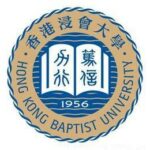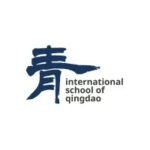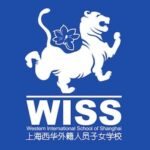Job Description
HKBU is now embarking on a new stage of its development with a refreshed vision: to be a leading liberal arts university in Asia for the world delivering academic excellence in a caring, creative and global culture.
At the heart of its strategic plan lies a commitment to enhancing world class interdisciplinary research that would influence public thinking and policy making. To maintain its relevance to society and ensure continuance of its contributions to the creation and transfer of knowledge for the benefit of all, HKBU is purposefully investing resources to implement a comprehensive plan of action, including the Talent100 initiative.
Professor Roland Chin, President of HKBU, says, “We are seeking faculty and research talents from around the world regardless of race, nationality, creed, and religion to teach, conduct research, and advance humanity at our caring university in Hong Kong—Asia’s World City.”
Please visit Current Openings for most up-to-date opportunities.
Attractive remuneration package
- Salary
- Contract-end gratuity
- Cash allowance (discretionary)
Leave benefits
- Annual leave
- University holidays
- Casual leave
- Sick leave
- Maternity and paternity leave
- Compassionate leave
- Absence on duty
- Sabbatical leave
Mandatory Provident Fund
Sustainable and Green Campus Environment
Collegial working environment
Working in Hong Kong
1. VISAS
A foreign national who will move to Hong Kong for the purpose of employment must obtain an employment visa issued by the Hong Kong Immigration Department. In addition, the accompanying family members, defined as spouse and children, must obtain dependent visas. The employment visa must be obtained PRIOR to arrival in Hong Kong. Visitors are not allowed by law to take up employment (paid or unpaid), and a visitor visa is not a legally valid document for employment. The University therefore cannot permit commencement of duty unless an employment visa has been obtained.
2. TAXATION
Income earned in Hong Kong is subject to a yearly salary tax (up to a maximum flat rate of 15%). The fiscal year runs from April 1 through March 31. The monthly salary/stipend, earned gratuity, and allowances are all subject to taxation. For further information, please refer to http://www.ird.gov.hk/.
3. CURRENCY
The local currency is the Hong Kong dollar (HK$), which is pegged to the US Dollar at a rate of US$1=HK$7.8, although the rate fluctuates slightly.
4. HOUSING
Space is at a premium in Hong Kong, and as a consequence, housing is an expensive commodity. Most people live in housing that would be considered by US or UK standards to be small. Prices fluctuate, and generally reflect the state of the property market.
5. EDUCATION
In Hong Kong, children between the ages of three and six could receive pre-primary education at kindergartens which are privately run. Starting from the 2008-09 school year, Hong Kong provides twlve-year free education from primary to secondary levels. Eligible children irrespective of sex, ethnic origin, religiou or ethical belief, and family status, have the right to enjoy basic education in public sector schools.
There are three types of school available to primary and secondary students in Hong Kong:
Government and Aided Schools
School funded by the government provide free education to local students from Primary 1 to Secondary 6/7 (equivalent to grades 1 through 12/13 in the US syteme) starting from the 2008-09 school year. Their language policy is to enable students to learn effectively, and to be biliterate and trilingual i.e. write good Chinesse and English and speak Cantonese, Putonghua and English fluently.
English Schools Foundation (ESF) Schools
ESF scholls have traditionally taught the National Curriculum of England and Wales, adapted to the Hong Kong context and the schools are now moving to a curriculum leading to the International Baccalaureate programme. They draw students from all the English-speaking foreign communities in Hong Kong, and application is open to any child who has the linguistic ability to beenfit from an English-medium ducation. The ESF was established in 1967, and now administers about twenty schools including secondary, primary, “all through” schools, kindergartens and a school for children with special eductional needs. Academic attainment is high, and the schools all have a good record of successful entrance into tertiary education worldwide. All ESF schools are co-educational, day schools with a comprehensive intake. For further information, please refer to http://www.esf.edu.hk/.
Private Schools
Hong Kong operates a vibrant international school sector with a total of 56 international schools operating curricula of the United Kingdom, the United States, Australia, Canada, Japan, Korea, Germany, France, Singapore and the International Baccalaureate Organization. They are providing international education services and have traditionally been meeting the demand from non-Chinese speaking students and foreign nationals most of whom would eventually return to their home countries for education. Class size, demographics, admission requirements and application procedures as well as tuition fees vary from school to school. In general, they charge relatively high tuition and entry fees, and require either the purchase of a debenture or payment of a capital contriution, to cover all school-related costs.
Kindergarten Education
All kindergartens in Hong Kong are privately run and they can be categorized as non-profit-making kindergartens and private independent kindergartens depending on their sponsoring organizations which can be either volutary agencies or private enterprises. Among the 1,000 existing kindergartens, about 80 are international/English-speaking kindergartens using English as the medium of instruction. Their charges and qualities may vary to a substantial extent.
6. CLIMATE
Hong Kong has a sub-tropical climate with distinct seasonal changes. The four seasons are:
Summer (late May to mid-September) is hot and humid. Three quarters of Hong Kong’s rain falls during these months. Temperatures rise to 33°C(92°F) or higher, with humidity around 90%. Cyclones, known locally as typhoons, nearly always affect Hong Kong during these months.
Autumn (late September to early December) is cool and dry with bright blue skies and little rainfall. The average temperature is 22°C (72°F).
Winter (mid-December to late February) is moderately cold with low humidity. The average temperature is 16°C (61°F) but the temperature often drops lower.
Spring (March to late May) gets warmer and wetter. It may rain for a week or two at a time and mildew is often a problem. The average temperature is 21°C (68°F).
Click here to view all job openings at HKBU
Related Pages
- For more information about the university, please visit Hong Kong Baptist University
- For more university jobs, please visit University Jobs in China
- For more jobs in Hong Kong, please visit Jobs in Hong Kong







